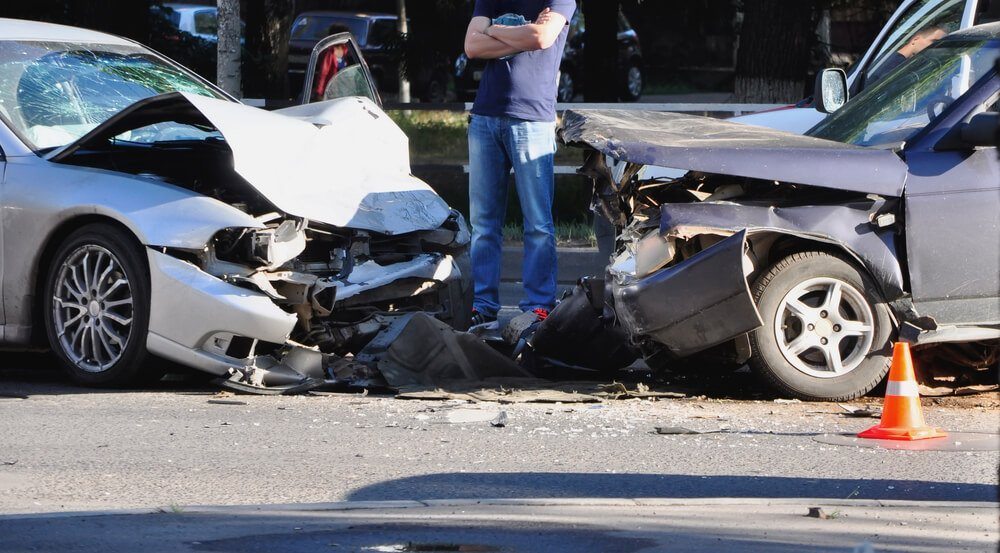You’ve had a car accident, and now you have questions on how to claim car accident insurance. No matter how small the damage, you want to make a claim — that’s why you pay for insurance. Essentially, a claim is compensation for damages you or another party sustains in an accident.
There are several factors that will determine the type of coverage you’ll receive, from responsibility to type of damage. Learning how to claim car accident insurance doesn’t have to be intimidating, though. Here are four steps you should take to make a claim.
1. Involve the police
After an accident or any damage to your car, you’ll likely be frazzled, confused, and in some amount of shock. Contacting the police offers the opportunity for a level-headed, impartial third party to document the accident in question. They can document fault, injuries and whether or not either party is taken to the hospital.
Similarly, the police can protect you if the other party becomes hysterical. They will later provide you with a copy of the police report, which offers the facts of the accident to provide to the insurance company. Occasionally, you may need to report your accident to the Department of Motor Vehicles.
2. Call your insurance company
You should call your insurance company either at the scene while waiting for the police, or immediately afterward. They can help keep you calm and explain the process in detail of how to claim car accident insurance. They will explain what to do with your car. If your car is totaled, they will help arrange for a towing service to pick the car up (if it is covered in your policy). They can also help arrange contact with a rental car service until you receive payment for your claim, also dependent on policy coverage.
Ultimately, you won’t know how much they can help you and your situation unless you call. The sooner you call, the sooner you can make your claim and rectify the situation. They will open the claims file, and the filing process will begin.
3. Speak with the Claims Specialist
After you report the accident to your insurance company, they’ll assign a Claims Specialist or adjuster. The adjuster will speak for you to anyone involved — be that third parties or the other person’s insurance company. They work to gather all of the details of the situation to determine your claims and reparations.
Typically, you will either meet or receive a phone call to talk about the claim. The adjuster will help you arrange a number of things to complete your claim:
- If your car is being repaired, they’ll have the car inspected and get a quote for repair estimates.
- Does your quote not seem right? They may recommend you go to another repair shop more in accordance with your insurance.
- If the insurance company did not previously help you get a rental car, the claims adjuster could help.
- They will look into personal injury costs — have these documents ready when they call.
- The adjuster will expect you to ask questions. They understand you may not have dealt with how to claim car accident insurance before and can answer questions about what comes next and what type of payment you will receive.
You will have one of two claims:
- Partial loss claim. Companies also refer to this as a diminished value claim. This occurs when a mechanic can repair your vehicle. Depending on the situation, you can request additional compensation for injuries or other financial hardship in addition to the car repairs.
- Total loss claim. This means the vehicle damage exceeds the cost of the vehicle itself. It’s important to ask for specifics in this scenario — what costs make it a total loss? How long will it take to settle? You may also call attention to the gap insurance policy, which covers cars that have not been paid off. However, it is important to note that not everyone has gap insurance included in their policy.
4. Claiming your payment
When the adjuster has pulled together all of the evidence, they’ll give you an estimate of the cost to repair your car and let you know whether or not you have a deductible to pay. It’s important to note what repairs the insurance company approves. If your insurance company doesn’t approve certain repairs, they will not pay you for it. As is the case, you shouldn’t approve anything until your insurance company has offered their input.
While the claims adjuster should be patient and helpful, if something seems off or you’re not receiving clarity on an issue, you should contact your insurance agent or your insurance company’s ombudsman.




